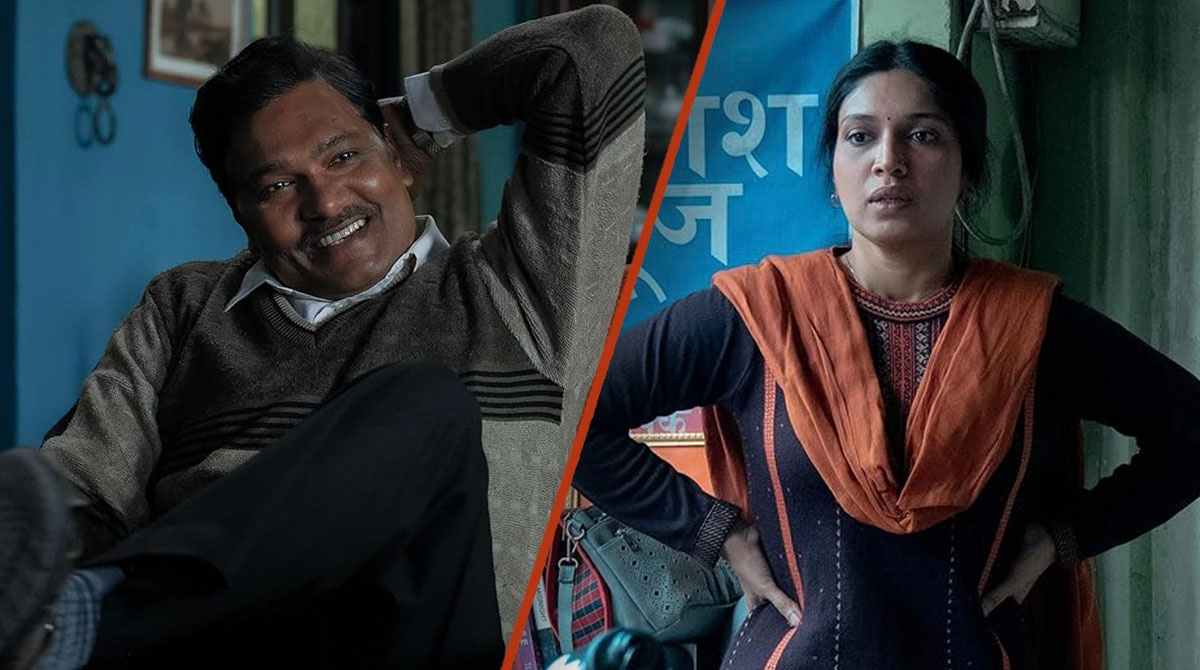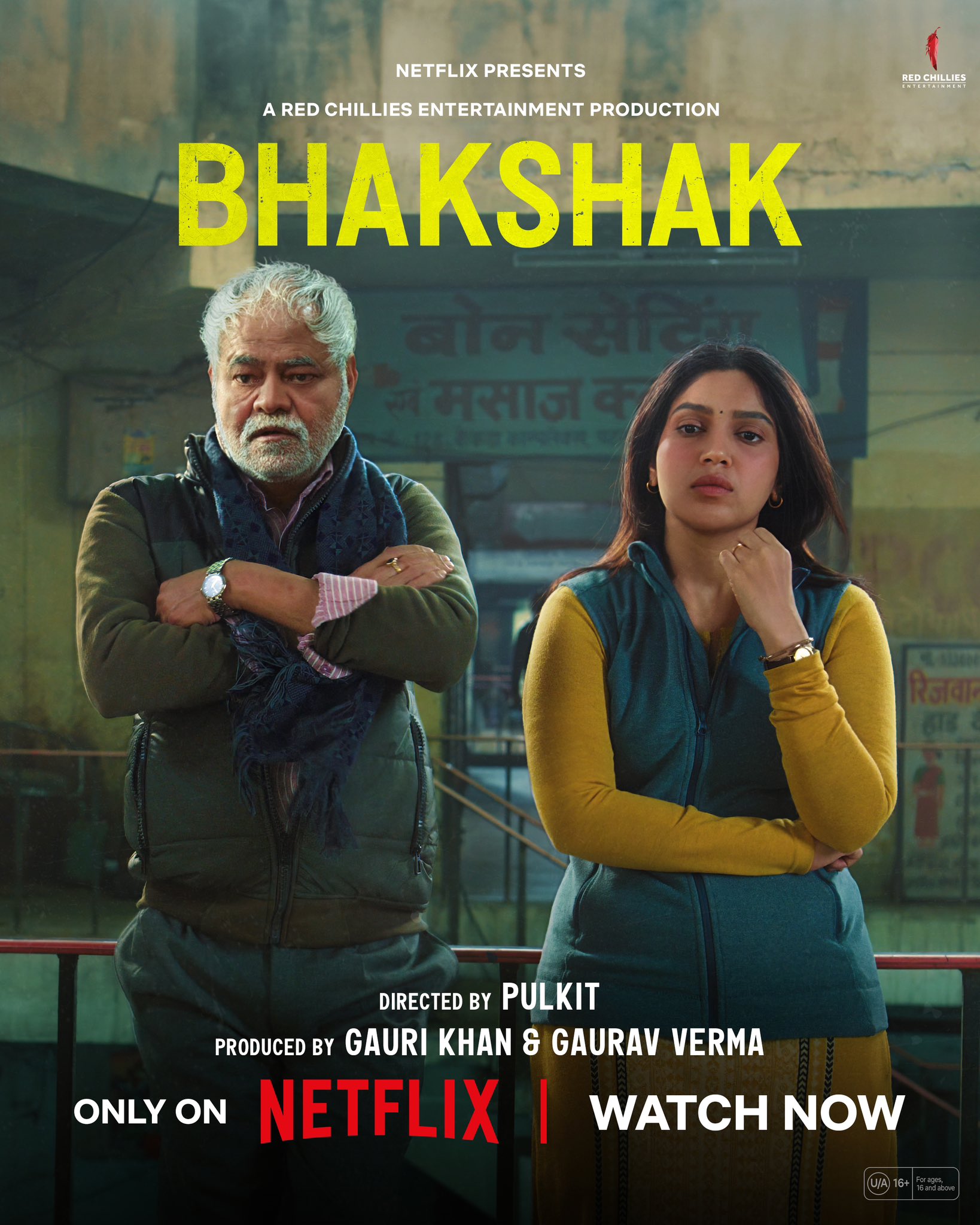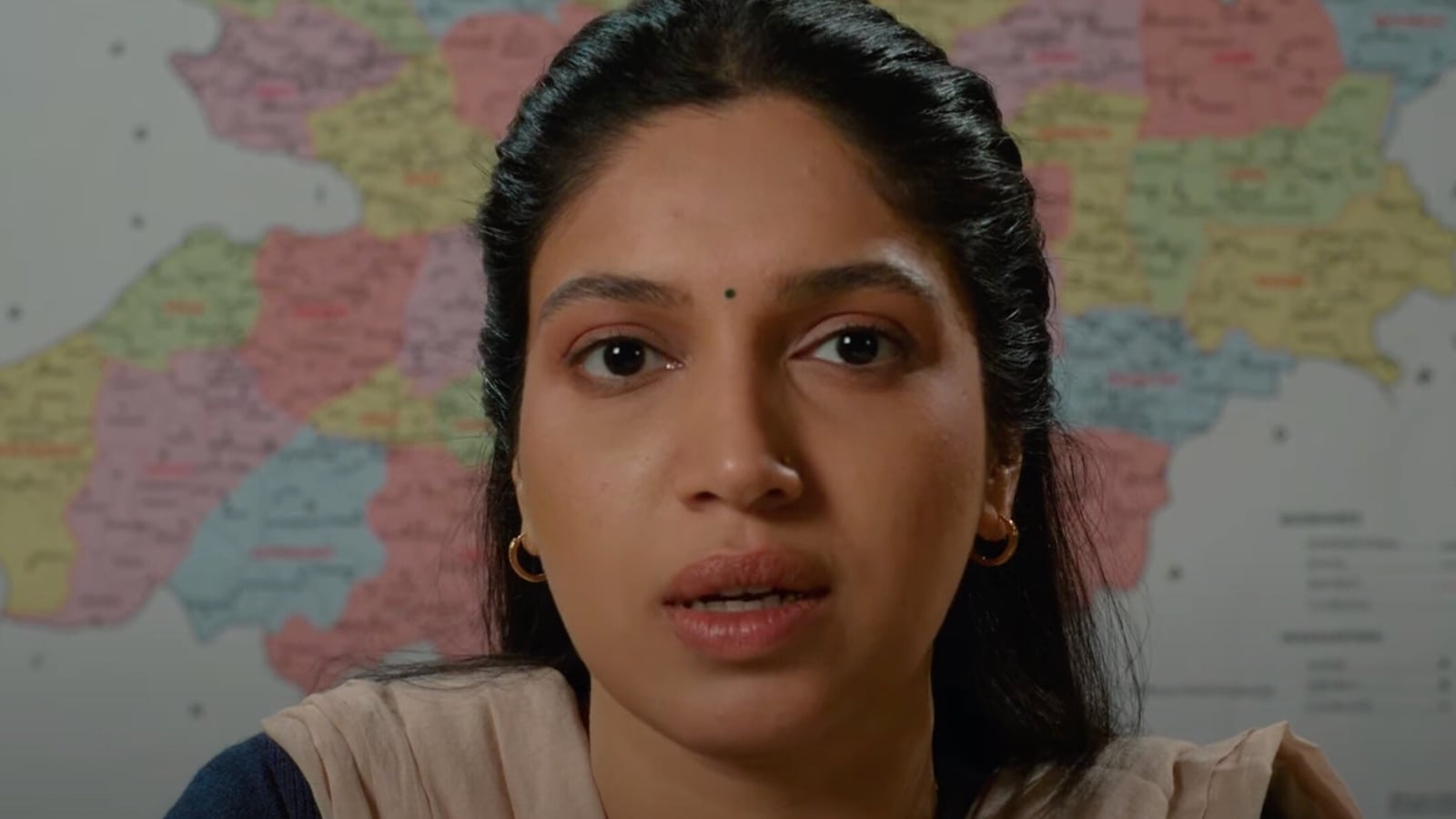Trigger Warning: Rape, Child Sexual Abuse
You start watching Bhakshak with a cup of tea, expecting some superficially serious Bollywood film that barely scratches the surface but you are woken up at the first scene. It begins with the rape of a minor, a laughing culprit who puts chili powder in the girl’s vagina because she was not submissive, and a middleman trying to cover the crime by killing and cremating the girl. But who bothers with the identity of an orphan? And who speaks for the rights of these girls abandoned in shelter homes?
Bhakshak (literally predator) is a no-nonsense gripping tale of a journalist fighting for justice.
Bhakshak (literally predator) is a no-nonsense gripping tale of a journalist fighting for justice. Bhumi Pednekar plays the role of Vaishali Singh, an earnest journalist who is honest and resilient. Her acting is flawless with a few dull moments of expressionless snares. She binds together an intriguing story and carries it graciously.
Bhakshak, the predator
Bhakshak does not shy from traveling to the innermost dark corners of a shelter home in Munawwarpur. It brings the most heart-wrenching and gutting tales of abuse, rape, and torture to the fore. The title of the film conveys the soul of the story. The predator is not just the rapist, but every man or woman involved in the hegemony of the hierarchy of abuse is a Bhakshak. Every step of the social hierarchy is dissected and responsibility is placed carefully.
The predators don’t just devour the bodies of minor victims, but orchestrate a cruel game of predation. They enjoy insulting and taunting the caged agency of these girls. They are made to dance to their tunes, quite literally!
The real life Bhakshak
This film is inspired by the true events of the Muzaffarpur shelter home case in Bihar. The case shook the entire nation when 34 out of 42 girls confirmed sexual abuse, rape, and torture in medical examination. The case drew a lot of attention when the first information report was lodged against 12 people on 31 May 2018. It directed criticism for the Nitish Kumar government for allegedly covering the report and protecting the culprits.
Nivedita Jha, the real-life journalist who inspired Bhumi Pednekar’s role, fought with resilience with her life at stake. Hailing from Bihar, Nivedita is an inspiration and personifies the true essence of journalism. The 2018 fight for justice for the girls residing in the shelter home is the ideal plot for what gender equality and subaltern justice must look like.
The prey of the Bhakshak
The film opens with a screaming young girl rolling on a stained mattress in a dark and dingy room echoing with the boisterous laugh of the rapist. The continuous laugh keeps mocking the audience till she is forcefully killed and burned. Her existence does not matter, she has no name, she has no caste, and she is only ‘Bansi’s property.’
The film opens with a screaming young girl rolling on a stained mattress in a dark and dingy room echoing with the boisterous laugh of the rapist.
The girls are stuffed like suitcases in a small room with no windows. They don’t even have the space to stretch their limbs, metaphorically binding them in a cage where they can’t think of freedom. They are given sedatives, forced to drink alcohol, and made to dance for the men who can touch them wherever they want.
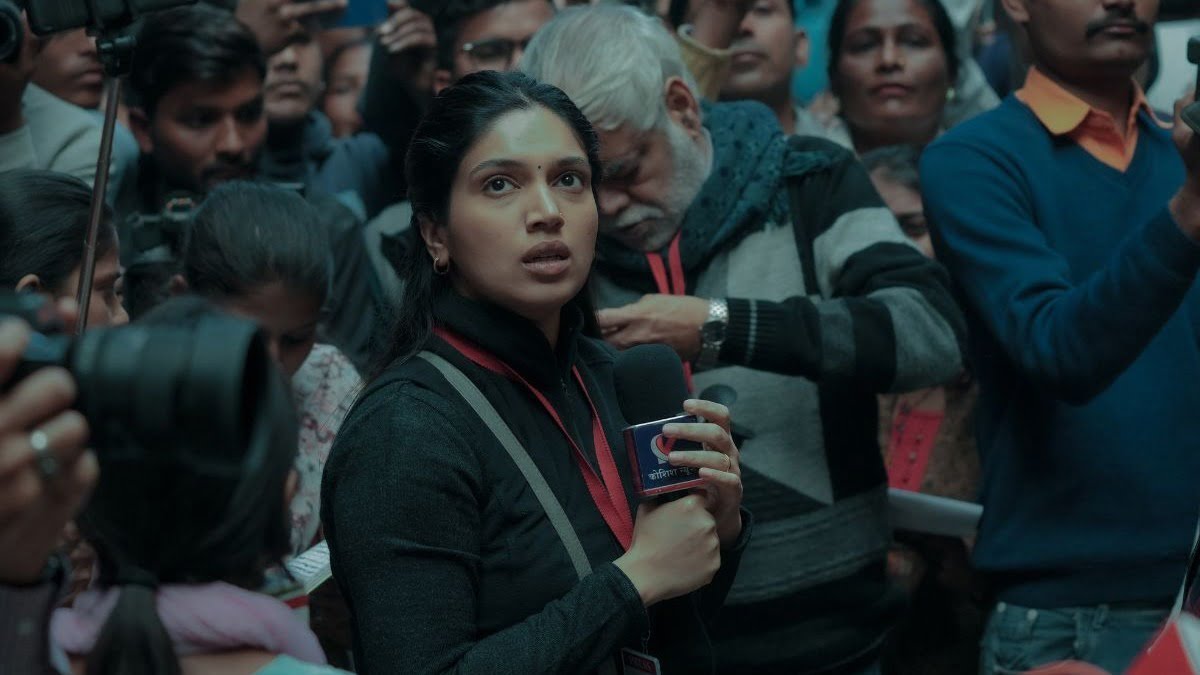
Rape is not just a medium of sexual satiation but an expression of gender bias and power. It is masculinity’s vulgar assertion of strength and power. The abuse in the film is shown as bereft of any beautification. It is shown for what it is, the meal of the predator where he taunts, seduces, and devours.
Vaishali Singh, a desperata and failing news reporter
Bhumi Pednekar plays the role of a passionate journalist who wants to make it big with her news channel. The frequent altercation with her husband depicts how her channel has been failing for a few years, but her passion and resilience keep her going.
She is a woman, a strong woman, a passionate woman, but a woman. Her gender becomes significant because of how she is treated and how she empathises with the victims. It is her femininity that colours her differently. The assertion of her gender acts as a contrast to the girls in the shelter home, Vaishali has a voice, agency, freedom, and a name.
The assertion of her gender acts as a contrast to the girls in the shelter home, Vaishali has a voice, agency, freedom, and a name.
Her home is portrayed as a middle-class dwelling where money is always thin but ethics are always thick. A husband who loves her but is a chauvinist and a brother-in-law (mehmaan) who is a patriarch is the challenges Vishali must fight at home before she leaves to conquer the world.
Womem, abuse and pregnancy in Bhakshak
Pregnancy or childbearing and the correct age for it is a century-old debate in society. While every culture can have its beliefs, where does a woman’s agency lie in the conundrum?
Vaishali does not want to have a baby till she is professionally stable. She is taunted by her in-laws and advised but remains adamant about her priority. She has agency and exercises it; she even confronts her husband and proposes separation if he persists.
The girls of the shelter home, on the other hand, are victims of fate and patriarchy. They are fed pregnancy termination pills, subjected to unsafe abortions, and treated on blood-stained beds. They have no agency and no voice. They are not asked or heard; they are just subjected to abuse. Early pregnancies are a topic the film barely touches, it is suggested and scraped over.
Representation of women in Bhakshak
The film boasts of representing many facets of femininity. Women are the prey and the savior and everything in between. Apart from Vaishali, Bhakshak depicts the role of first-time woman SP in the state of Bihar. She is a strong woman who is resilient and practical. She knows the system and works within it while rooting for the good.
Vaishali and the girls of the shelter home are represented as binaries. A free bird tracing the streets of the state in her vehicle and the caged birds waiting for a window to open. There are other women characters too who are neatly placed in their patriarchal construct.
Vaishali’s sister-in-law is a housewife who blindly follows her husband’s whim. She has no moral compass, just an obligation to serve her husband and his home. She seldom sympathises with Vaishali and keeps repeating the importance of bearing children and how the biological clock is ticking. She casually says in a scene, ‘Bacha to hona hi chahiye.’
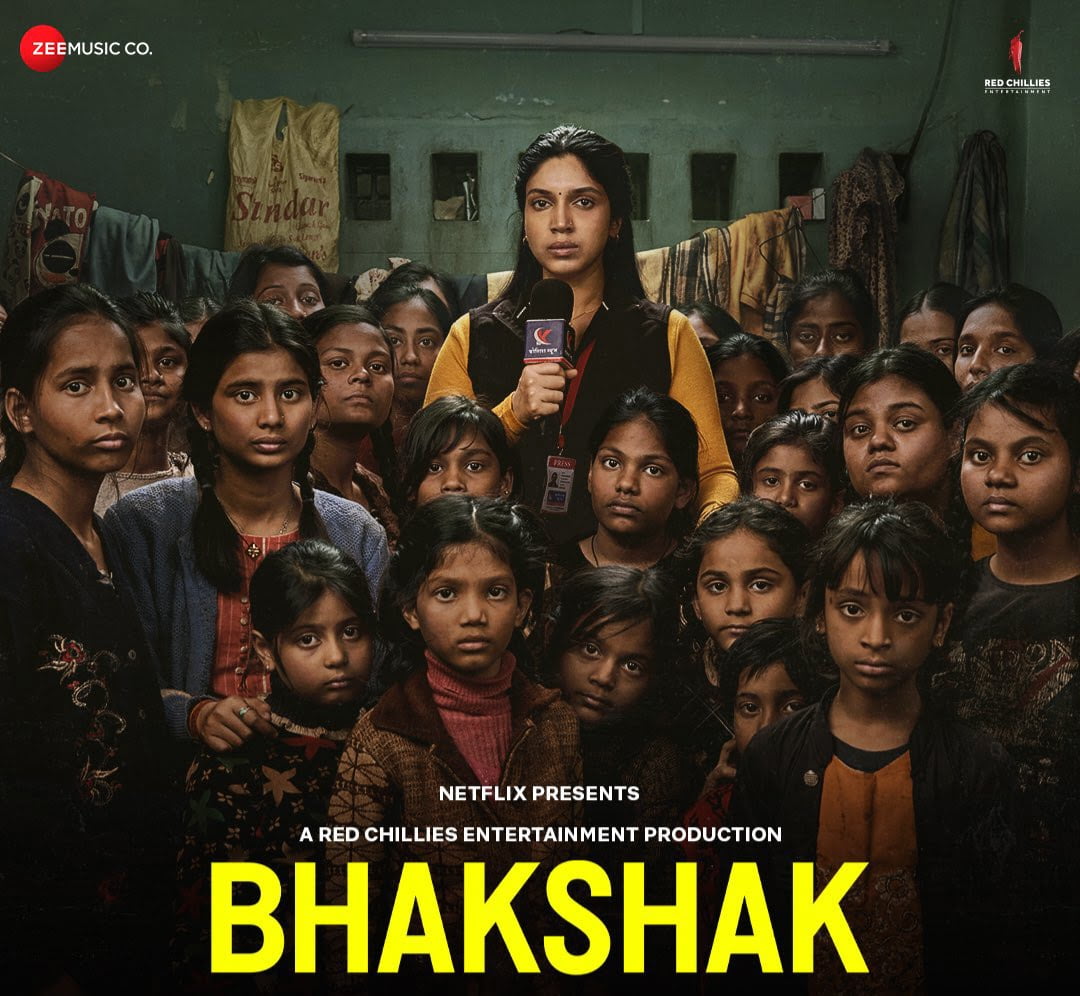
Then there is the minister, the wife of the man who has assumed power. The minister played by Vibha Chibber is a caricature of women fighting for a seat on quota. The patriarch assumes the power and soon makes her irrelevant. She is not a woman concerned about other women; she is an agent of patriarchy trying to justify the system.
The character of Baby Rani
Bhakshak is not just the men, but the women who become agents of patriarchy. The character of Baby Rani played by Gulista Alija deserves a separate mention. The actor is impeccable but so is the research and writing gone into the making of this character. She is shrewd, powerful yet helpless, a coquette and an enforcer at the same time.
Baby Rani welcomes the girls in the shelter home and then orchestrates whatever follows. She examines them, feeds them pills, gets them ready for the evening rituals, and keeps a tab on who returns and who needs to be disposed of. She is the lowest of the hegemony but aggressively asserts her position when with the girls.
The character of Baby Rani played by Gulista Alija deserves a separate mention. The actor is impeccable but so is the research and writing gone into the making of this character.
She asks the girls to sleep naked and sleeps with them. She abuses them sexually and then burns their skin with cigarette buds. She calls them all insane as they bite but hits them whenever she can. She is the pillar that keeps the institution of assault high and mighty.
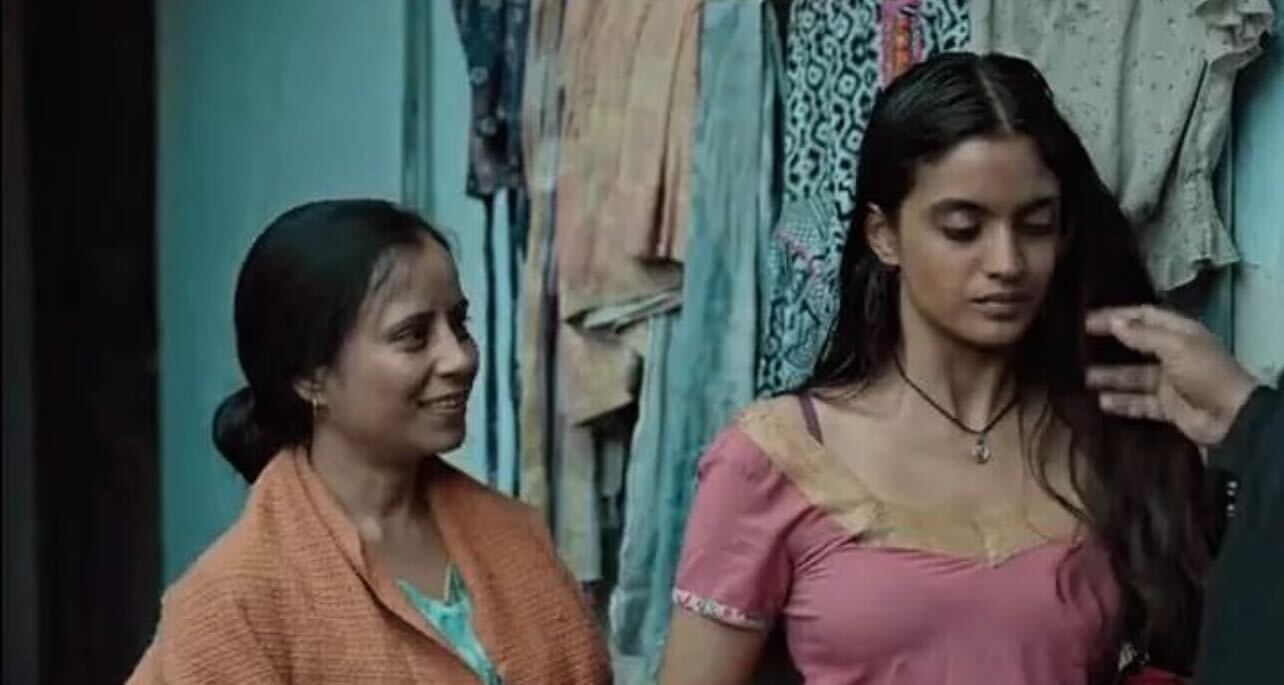
Bhakshak hits the most because it is true. It is almost a mirror placed in society when all we want to see is the satisfying glamour of social media. It is a rude awakening and a much-needed debate that needs to happen. The role of the doctor who almost never helps a victim, the guardians who are supposed to give shelter but end up raping, and the system that always disappoints are reminders of how grave our situation is.
What is most beautiful about the experience of watching Bhakshak is that it does not end with victory. It is never celebrated with a piece of upbeat music. It rather ends with breaking the fourth wall, Bhumi Pednekar breaking the ice wall and staring straight into our eyes and asking us, ‘What next?’
Bhakshak is the truth that must never be forgotten. It is a song that must be played so that society stays aware of its silenced victims and forgotten heroes like Gupta ji who plays a comical role but brings the news to light and files a PIL. He is the hero we need, and Vaishali is the journalist we deserve.
About the author(s)
Dr. Guni Vats is an Assistant Professor at the Department of English, Manav Rachna International Institute of Research and Studies. A PhD in Gender Studies, she is a renowned researcher, writer, and scholar.
